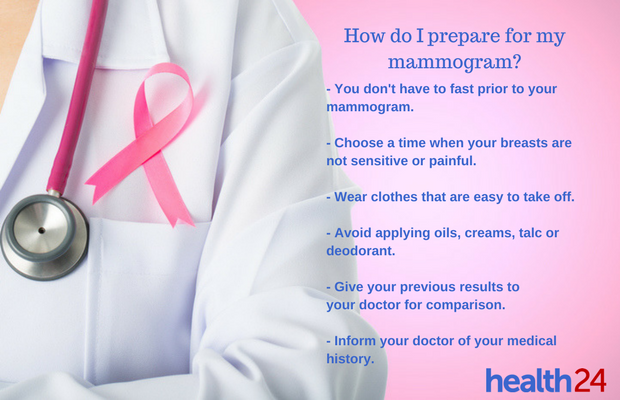
Are you overweight but chuffed with yourself because you go for regular medical checkups?
However, your annual breast cancer screening may not be enough.
Women who are overweight or obese may need to be screened for breast cancer more frequently, new Swedish research suggests.
Greater risk of breast cancer
The reason? Overweight or obese women are at greater risk of having breast cancer detected after the tumour has grown large – over 2cm – than their slimmer counterparts, the study found.
Heavier women also have a worse prognosis when their breast cancers are detected between regular cancer screenings (known as interval cancers) than normal weight women, the findings showed.
"It seems overweight women would need shorter time intervals between screenings than other women, but our study was not designed to quantify how much," explained Dr Fredrik Strand, a radiologist at the Karolinska University Hospital.
Normal, overweight and obesity
The study included more than 2 000 women from Sweden. All were aged 55 to 74, Strand said. All were diagnosed with invasive breast cancer between 2001 and 2008. The average BMI was 25.6. BMI is a rough estimate of body fat based on height and weight measurements.
A BMI between 18.5 and 24.9 is considered normal. A BMI of 25 to 29.9 is overweight, and over 30 is considered obese.
A 170cm woman with a normal BMI would weigh between 53 and 68kg. For that same woman, overweight would be about 70 to 82kg. Obesity would begin around 84kg, according to the US National Heart, Lung, and Blood Institute.
The researchers wanted to learn what factors – in a country with universal access to breast cancer screening – might have played a role in these women having large tumours when diagnosed either at the time of screening or during the interval between screenings. For this study, the interval between screenings was up to two years, Strand said. In the United States, the interval is usually around 12 months, the researchers noted.

Denser breast tissue linked to larger tumour
The study found that a BMI above 25 and having denser breast tissue were linked to higher odds of a large tumour when diagnosed with breast cancer during a screening. Only BMI was associated with having a large tumour for interval cancers.
Women with a BMI above 25 with interval cancers had a worse prognosis than thinner women. Strand said a worse prognosis was defined as the cancer coming back, the cancer spreading, or death from the cancer.
The study findings might be even stronger if done in a US population, he added, because people in the United States tend to be heavier than they are in Sweden.
The findings also hit close to home. According to the latest South African Demographic and Health Survey, almost 70% of local women are either overweight or obese. The country has the highest overweight rates for women in Africa.
More studies needed
Dr Laurie Margolies, chief of breast imaging at Mount Sinai Health System in New York City, said the study adds "another piece of evidence that might end the confusion about when to get a mammogram. Women should be screened every year."
Both experts noted that the findings need to be replicated. And Margolies said she'd like to see the study done with a US population.
Strand is to present his study at the Radiological Society of North America annual meeting, in Chicago.
Image credit: iStock




 Publications
Publications
 Partners
Partners











